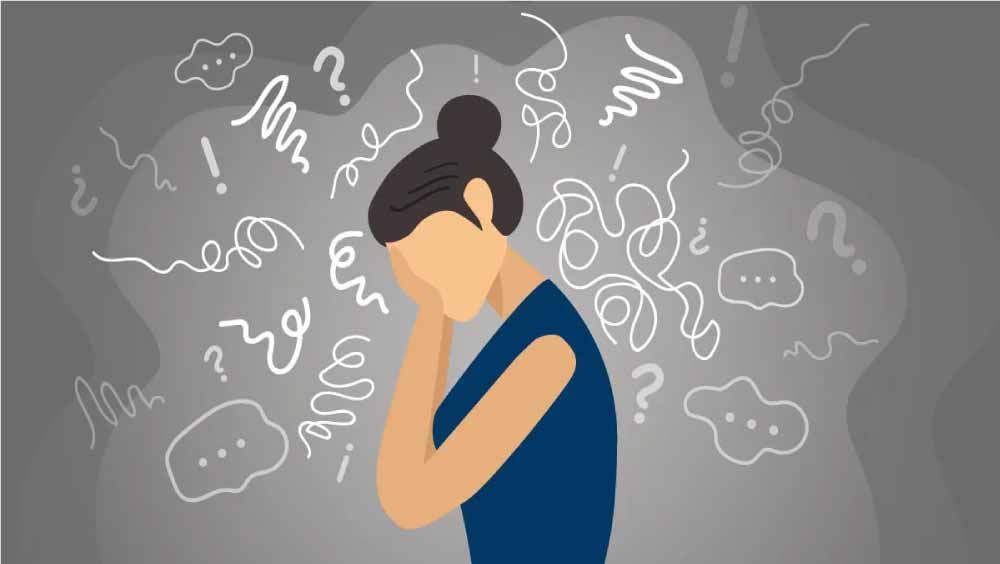There is a stigma that alcoholics and their loved ones avoid the company of others, but this is not always true. Today, it is easier to encourage others to drink in moderation with an alcohol cocktail that also includes sugar and caffeine, inciting alcoholism.
The definition of alcoholism
There is no single definition of alcoholism, as the disorder has been defined in different ways throughout history and by different organizations. In general, however, alcoholism is a chronic disease that affects an individual’s ability to control their alcohol consumption. It is often characterized by alcohol abuse, which is the regular use of alcohol in excess and which has negative consequences. Alcoholism can also lead to physical and mental health problems, such as liver damage and addiction.
Some factors that can increase a person’s risk of developing alcoholism include genetics and family history, stressful life events, poor coping skills, and a history of substance abuse. There is no single cause for alcoholism, but genetics and environmental factors (such as stress) are thought to play a role.
Alcoholism usually begins with moderate alcohol consumption (less than four drinks per day for women, less than seven drinks per day for men). But even small amounts of alcohol can be enough to start the chain of events that leads to alcoholism. Once someone has developed alcoholism, they can continue to drink even if it causes harm or problems.
Warning Signs of Alcoholism
There are warning signs of alcoholism that can be easily overlooked. If you or someone you know has any of these symptoms, it may be time to seek professional help.
- Drink more than usual, even if you won’t get drunk.
- Having a strong desire for alcohol, even when it makes you miserable or puts your life at risk.
- Experiencing withdrawal symptoms when alcohol is not available, such as feeling anxious, irritable, or restless.
- Tell yourself that drinking is okay or that you can manage your problems without alcohol.
- Withdrawing from friends and social activities due to alcohol consumption.
- Fainting regularly or getting into fights while drinking
Reasons why people drink
People drink alcohol for a variety of reasons. Some people drink to socialize and have a good time. Others drink to relieve stress or feel comfortable. Others drink because they are addicted. Here are some reasons why people become addicted to alcohol:
- People who are addicted to alcohol often start drinking when they are young, often before they know what it is.
- Addiction can happen very quickly if you are not careful.
- Once you develop an alcohol addiction, it becomes difficult or impossible to quit on your own.
Relieve stress
It’s no secret that alcohol can relieve stress. But is it really the best way to do it? Here are some reasons why you might want to reconsider alcohol consumption to relieve stress:
It can lead to addiction: Alcoholism is a serious problem that can lead to health problems, financial ruin, and even death. If you’re struggling with alcoholism, drinking to relieve stress may be one of the things that got you started.
It can cause anxiety and depression: Excessive alcohol consumption can lead to anxiety and depression, which can make it harder for you to deal with stress in your life. Drinking also makes it harder for you to think clearly and make decisions, which can lead to even more stress.
May cause memory problems: Drinking can cause memory problems, including trouble remembering important information from earlier times when you were under the influence of alcohol. This can make it difficult for you to function normally in everyday life situations.
Feeling good
Alcoholism is a problem that can have a significant impact on an individual’s life. It can cause health problems, social isolation, and financial hardship. Alcoholism is often a chronic condition, meaning it’s hard to overcome on your own. If you or someone you know is struggling with alcoholism, there are resources available to help.
If you think someone may be suffering from alcoholism, the first step is to try to get them the help they need. There are many different types of treatment options available, and your loved one is likely to benefit more from a combination of therapies. Some common treatments include Alcoholics Anonymous (AA), cognitive behavioral therapy (CBT), and relapse prevention programs.
If alcohol abuse is causing problems in your relationship, it may be helpful to seek counseling together. Marriage counseling can be very beneficial for couples who are experiencing difficulties due to alcohol abuse. Counseling can help both partners identify the root causes of their problems and develop effective coping mechanisms.
Coping with loss
When someone you love suffers from alcoholism, the pain can be excruciating. You may feel that you have no power to help them, or that you are the only one who can do things right. But there are ways to cope with loss and alcoholism that will help both of you get through this difficult time.
First, remember that addiction is a disease, not a character flaw. There is no shame in having an alcoholic loved one; In fact, it can be quite difficult to deal with your condition on your own. Accept that alcoholism is a problem and do what you can to support your loved one as he or she fights for his or her life.
If your loved one is seeking treatment, support him or her through the process. It may take time for them to recover, but supporting their recovery is key. Help them find community resources and support groups that fit their needs, and offer encouragement every step of the way.
Above all, remember that your loved one pays to be saved, even if it sometimes doesn’t seem like it. Keep fighting for them until they recover; They will thank you later.”
Overcoming anxiety
Anxiety is a common mental health problem that can severely affect a person’s life. If left untreated, anxiety can lead to depression and other serious conditions. Fortunately, there are many ways to overcome anxiety. Here are some tips:
- Talk openly about your anxiety with your friends and family. Let them know what triggers it for you and how they can help you through difficult times.
- Exercise regularly. Good physical exercise helps release endorphins, which are natural mood boosters. In addition, it can boost your self-confidence and reduce stress levels in general.
- Make time for hobbies and activities that interest you. This will help distract you from negative thoughts and focus on something positive.
- Take care of yourself physically by eating a balanced diet and getting enough sleep each night. Both habits will help improve your overall mood and energy level.
- Manage stress healthily whenever possible. This could include taking time for yourself every day or exercising regularly to release endorphins, but also avoiding the things that stress you out in the first place, such as caffeine, alcohol, or smoking tobacco products.
Connections
The lack of connection that can be felt between people who are alcoholics and their families can have a lasting impact on both individuals and their relationships. Alcoholics tend to see their families as sources of support, but often these interactions are strained. Families may feel they can’t help the alcoholic, or they may feel like they can’t understand what’s going on. This lack of connection can also lead to family members feeling resentful and abandoned.
Alcoholism can cause a lot of harm to both the individual and the family unit. The individual may lose jobs, relationships, and custody of children as a result of their alcoholism. Families may also experience financial stress, health problems, and disrupted lives. For families to overcome the challenges posed by alcoholism, they need to have a strong connection with each other. There are many things families can do to strengthen this connection: they can talk openly about what’s going on, support each other in difficult times, and provide a safe environment for the alcoholic member.
Shame on alcoholism
People with alcoholism often feel ashamed of their problem. Shame is a common emotion felt by people with alcoholism and can interfere with their ability to seek help. Alcoholism is a serious illness that requires treatment, and people who are struggling should be encouraged to seek help. There are many resources available to them, including support groups and rehabilitation facilities.
People with alcoholism often feel ashamed of their drinking. They may feel like they’re bad or flawed humans because of it. This embarrassment can interfere with your ability to seek help. Alcoholism is a serious illness that requires treatment, so people who are struggling should be encouraged to seek help. There are many resources available to them, including support groups and rehabilitation facilities.
Health complications from alcohol abuse
Alcoholism can lead to a wide variety of health complications. These can include liver cirrhosis, heart disease, stroke, attention-deficit/hyperactivity disorder (ADHD), and even cancer. Some of the most common health problems associated with alcoholism are as follows:
Liver cirrhosis: Cirrhosis is a condition in which the liver becomes scarred and damaged. Alcoholism can cause cirrhosis in people who abuse the substance for years or who have a history of binge drinking. As the liver fails, it cannot function properly and begins to discharge toxins into the bloodstream. This can lead to serious health problems, including death.
Heart disease: Heart disease is one of the leading causes of death in the United States. It is caused by factors such as obesity, smoking and poor diet, but alcohol abuse also plays a role. Excessive drinking increases the risk of developing heart disease by raising blood pressure and causing other inflammations in the body.
Stroke: A stroke is a sudden problem with blood flow to the brain or part of the body. Strokes can be fatal if not treated quickly. Alcohol abuse is a major risk factor for stroke, because heavy drinking increases blood pressure and decreases blood flow to the brain. In addition, alcohol can cause strokes due to its effects on blood clotting.


